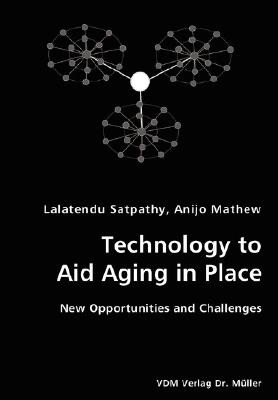
- We will send in 10–14 business days.
- Author: Lalatendu Satpathy
- Publisher: VDM Verlag Dr. Mueller E.K.
- Year: 2007
- Pages: 192
- ISBN-10: 3836427494
- ISBN-13: 9783836427494
- Format: 17 x 24.4 x 1 cm, softcover
- Language: English
- SAVE -10% with code: EXTRA
Technology to Aid Aging in Place- New Opportunities and Challenges (e-book) (used book) | bookbook.eu
Reviews
Description
With cheaper and more ubiquitous computing, "smart" spaces and responsive environments are increasingly becoming plausible and affordable. Can the profession of architecture respond to current computing technologies? Most critics agree that one of the first (most important) problems that "smart" homes will help to address is that of spiraling costs of elderly healthcare and care giving. But what is the problem with healthcare? Will the technologies that are designed for the urban home work in a rural setting? This book addresses the above questions through research of current problems and models of rural healthcare and through a documentation of existing studies and a focus group study at Meridian, MS. The book also examines the role of architecture (and architects) in the context of ubiquitous computing and "smart" spaces in rural areas.
EXTRA 10 % discount with code: EXTRA
The promotion ends in 21d.00:32:13
The discount code is valid when purchasing from 10 €. Discounts do not stack.
- Author: Lalatendu Satpathy
- Publisher: VDM Verlag Dr. Mueller E.K.
- Year: 2007
- Pages: 192
- ISBN-10: 3836427494
- ISBN-13: 9783836427494
- Format: 17 x 24.4 x 1 cm, softcover
- Language: English English
With cheaper and more ubiquitous computing, "smart" spaces and responsive environments are increasingly becoming plausible and affordable. Can the profession of architecture respond to current computing technologies? Most critics agree that one of the first (most important) problems that "smart" homes will help to address is that of spiraling costs of elderly healthcare and care giving. But what is the problem with healthcare? Will the technologies that are designed for the urban home work in a rural setting? This book addresses the above questions through research of current problems and models of rural healthcare and through a documentation of existing studies and a focus group study at Meridian, MS. The book also examines the role of architecture (and architects) in the context of ubiquitous computing and "smart" spaces in rural areas.


Reviews